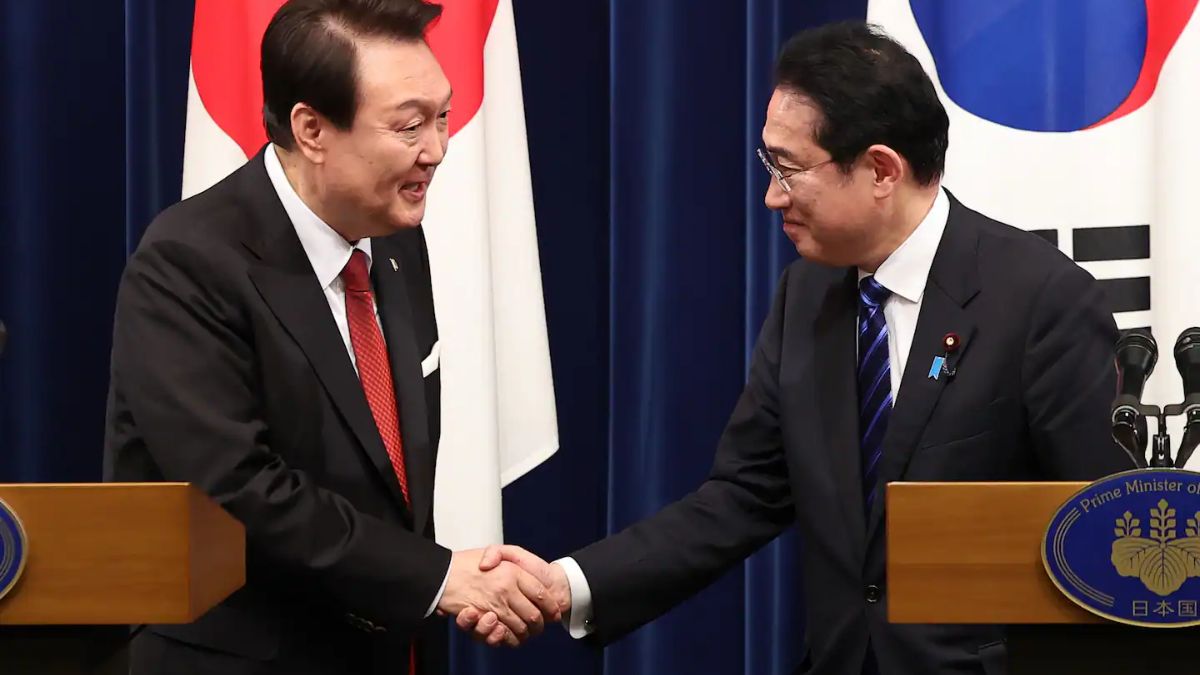As Japanese Prime Minister Fumio Kishida prepares for a final diplomatic tour before leaving office, his visit to South Korea may exacerbate, rather than ease, the criticism that President Yoon Suk Yeol faces at home. South Korean experts believe the visit will not help Yoon overcome the perception that he has been overly conciliatory toward Japan—a narrative that has long dogged his administration.
Despite Yoon’s efforts to mend ties with Japan, including resolving disputes related to forced labour during Japan’s colonial occupation of Korea, the political climate in Seoul remains tense. Polls suggest that approximately 60% of South Koreans oppose Yoon’s approach to Japan. The conservative president’s attempts at rapprochement have sparked accusations from opposition groups and civil society that he is prioritizing diplomacy over justice for historical grievances.
Kishida’s visit, scheduled for later this month, follows a series of recent diplomatic engagements between the two countries, including Yoon’s own visit to Tokyo earlier this year. However, experts caution that the outcomes of these meetings, while significant on paper, do little to sway public opinion in South Korea. Many Koreans continue to demand a more formal apology and reparations from Japan for wartime atrocities.
“Kishida’s visit could potentially backfire for Yoon,” said Moon Chung-in, an international relations scholar to local media. “The president has not built enough national consensus to justify his approach to Japan. Without tangible progress on historical issues, this outreach will likely falter.”
While Kishida is expected to reaffirm his country’s position on maintaining strong ties with South Korea, Japanese officials have indicated that no new apology will be forthcoming. This stance could further inflame tensions, particularly among victims of forced labour and their families, who argue that Japan’s previous statements of remorse have been insufficient.

